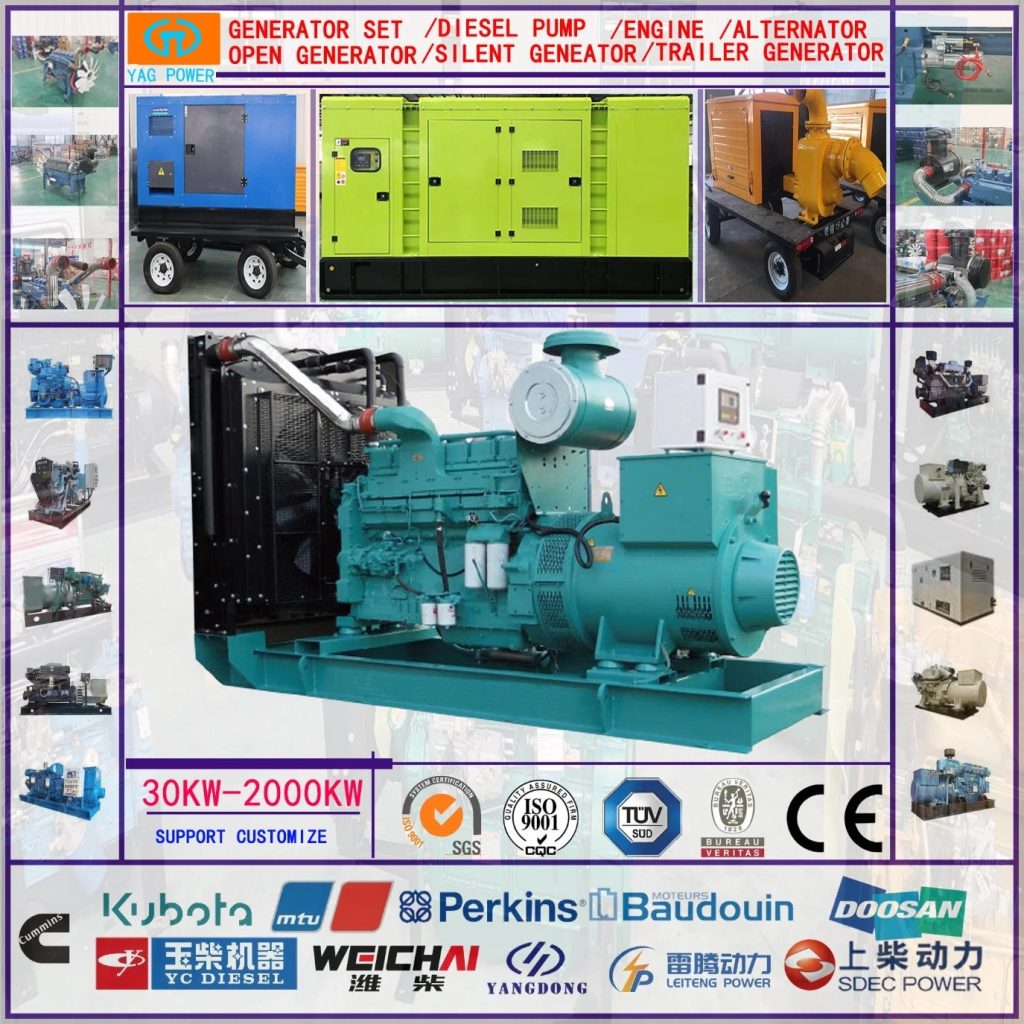Introduction
In times of power outages and emergencies, maintaining a reliable and resilient electrical grid is crucial for ensuring continuity of essential services and economic activities. One key aspect of grid resilience is the ability to quickly restore power after a complete system shutdown, known as a black start scenario. Diesel generators play a vital role in providing black start capability, offering a robust and dependable solution for restoring power to the grid in such critical situations.
This article explores the significance of diesel generators with black start capability in enhancing grid resilience, their operational features, benefits, and considerations for implementation.
Understanding Black Start Capability
Black start capability refers to the ability of a power generation unit to restart and re-energize a power grid without the need for external power sources. In a black start scenario, the entire grid is down, and the generation units must initiate the restoration process independently. This requires specialized equipment that can kickstart the grid, synchronize with other units, and progressively restore power to critical loads before stabilizing the system.
Diesel generators are well-suited for providing black start capability due to their inherent reliability, fast start-up times, and ability to operate in standalone mode without relying on external power sources. These generators are equipped with automatic start systems, control mechanisms, and synchronization capabilities that enable them to initiate and support the restoration of the grid during a black start event.
Operational Features of Diesel Generators for Black Start Capability
Diesel generators designed for black start capability are equipped with specific features and components to facilitate their role in grid restoration. Some of the key operational features include:
1. Automatic Start System: Diesel generators with black start capability are equipped with automatic start systems that can initiate the generator in response to a grid outage. These systems are programmed to detect power interruptions and automatically start the generator to begin the restoration process.
2. Control Mechanisms: Advanced control systems are integrated into diesel generators to manage the start-up sequence, fuel injection, load sharing, and synchronization with other units. These control mechanisms ensure smooth and coordinated operation during the black start process.
3. Synchronization Capabilities: Diesel generators must synchronize with the grid frequency and voltage levels before connecting to the system. Synchronization ensures that the generator can safely connect to the grid without causing disruptions or damage to the equipment.
4. Black Start Sequence: Diesel generators follow a predefined black start sequence to restore power to critical loads in a systematic manner. This sequence includes starting the generator, synchronizing with other units, and gradually connecting to the grid to stabilize the system.
Benefits of Diesel Generators with Black Start Capability
The use of diesel generators with black start capability offers several benefits in enhancing grid resilience and reliability. Some of the key advantages include:
1. Rapid Power Restoration: Diesel generators can start quickly and provide immediate power during black start scenarios, helping to restore critical loads and essential services without delay.
2. Standalone Operation: Diesel generators do not rely on external power sources for operation, making them self-sufficient and independent in initiating grid restoration processes.
3. Scalability: Diesel generators can be deployed in various sizes and configurations to meet the specific power requirements of the grid, enabling scalable solutions for different scenarios.

4. Reliability: Diesel generators are known for their durability, robustness, and long operational life, ensuring consistent performance during black start events and emergency situations.
Considerations for Implementing Diesel Generators with Black Start Capability
While diesel generators offer significant advantages for black start capability, there are several considerations to keep in mind when implementing these systems:
1. Maintenance and Testing: Regular maintenance and testing of diesel generators are essential to ensure their readiness and reliability during black start scenarios. Scheduled inspections, fuel quality checks, and performance testing should be conducted to verify the operational integrity of the generators.
2. Fuel Availability: Diesel generators require a reliable supply of fuel to operate effectively during black start events. Adequate fuel storage, fuel quality monitoring, and contingency plans for fuel delivery are crucial considerations for ensuring continuous operation.
3. Environmental Impact: Diesel generators emit pollutants and greenhouse gases during operation, raising concerns about their environmental impact. Implementing emission control technologies, using cleaner fuel alternatives, and adhering to regulatory standards can help mitigate environmental effects.
4. System Integration: Diesel generators must be seamlessly integrated into the grid infrastructure to ensure proper synchronization, load sharing, and stability during black start operations. 600kw generator with grid operators, system planners, and equipment manufacturers is essential for effective integration.
Conclusion
Diesel generators equipped for black start capability play a critical role in enhancing grid resilience and reliability by providing rapid power restoration during black start scenarios. These generators offer operational features, benefits, and considerations that make them well-suited for supporting grid restoration efforts in emergencies and power outages.
By understanding the significance of diesel generators with black start capability, grid operators, utilities, and policymakers can implement robust and effective solutions to enhance grid resilience and ensure continuity of essential services in the face of disruptions and emergencies.
